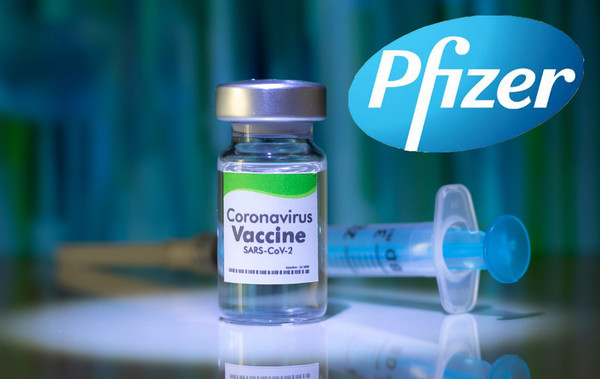Pfizer Korea’s 2022 sales exceeded 3 trillion won ($2.28 billion), nearly doubling the revenue volume from the previous year, thanks to the Covid-19 vaccine and treatment supply during the pandemic.

According to an audit report submitted by the company to the Financial Supervisory Service on March 6, Pfizer Korea's sales reached 3.254 trillion won ($2.45 billion) in 2022, up 90.4 percent from 2021. Operating profit soared 102 percent over the same period to 120.1 billion won.
Earlier in January, Samsung Biologics became the first Korean biopharmaceutical company to exceed sales of 3 trillion won.
Now, Pfizer Korea's annual revenue is the largest among all pharma and biotech companies operating in Korea.
Pfizer Korea's annual sales had once dropped to the 300 billion won range after its headquarters spun off its established medicines division to form Viatris.
In 2020, Pfizer Korea ranked fourth in sales among foreign pharmaceutical and biotech companies, behind AstraZeneca Korea, Sanofi Aventis Korea, and Roche Korea.
However, its sales grew rapidly after the company started to supply its Covid-19 vaccine in 2021. Pfizer Korea’s sales reached 1.69 trillion won in 2021 and the company secured the top sales position among multinational pharmaceutical offshoots in Korea in that year.
Pfizer Korea's sales in 2021 were even bigger than the combined sales of AstraZeneca Korea and Novartis Korea (653 billion and 542 billion won), which ranked second and third among multinational drugmakers operating in Korea.
Industry watchers said the Covid-19 vaccines and treatments were the most influential factors behind these record sales.
As Covid-19 vaccinations began in Korea in 2021, sales of Pfizer Korea's Comirnaty, its Covid-19 vaccine, rose sharply as they were the sole importer, marketer, and distributor of the vaccine in the country.
Pfizer Korea further boosted sales after it started to market Paxlovid, its oral Covid-19 treatment, in 2022.
As a result, the number of goods purchased from Pfizer's headquarters by the Korean offshoot increased from 31.12 billion won in 2020 to 297.14 billion won in 2022, with a significant portion of it being Covid-19 vaccines and treatments.
The cumulative surplus amounted to 425.6 billion won last year.
Pfizer’s U.S. headquarters is likely to recoup the surplus through a stock buyback or dividend, observers said.
However, Pfizer Korea will not be able to continue its high growth this year as the demand for Comirnaty and Paxlovid is expected to significantly decrease as Korea is transitioning into an endemic phase for the Covid-19 virus, they added.
The global headquarters has already highlighted such concerns in its annual report released in January.
Pfizer headquarters predicted that global sales this year would be between $67 billion and $71 billion, down 28 to 33 percent from last year.
Of that, Pfizer expected sales of Comirnaty and Paxlovid to drop down to $13.5 billion and $8 billion, down 64 percent and 58 percent from last year.
In Korea, the majority of the population has also already received the first and second doses of the Covid-19 vaccine, which is resulting in the number of additional vaccine doses declining significantly.
The government has already slashed its budget for Covid-19 vaccines from 2.6 trillion won last year to 215 billion won this year.
Despite the gloomy outlook for Covid-19-related sales, Pfizer Korea continues to put its focus on vaccines.
At the end of last year, Pfizer created a Covid-19 business unit dedicated to COVID-19 vaccines and treatments.
"We will unify the pandemic response by dedicating the dualized Corona 19 vaccine business and treatment business to the Covid business unit," said Song Chan-woo, Vice President of Pfizer Korea's Covid-19 business unit during that time. "We want to show leadership in the development and supply of new vaccines and treatments while preparing for a new pandemic, not just Covid-19."
Related articles
- Pfizer/BioNTech infant Covid-19 vaccine lands in Korea as daily cases go down
- Activist group demands government disclose details of vaccine purchase deal with Pfizer
- Pfizer applies for Omicron-fighting vaccine approval in Korea
- Regulator starts preliminary review of Pfizer's Covid-19 vaccine targeting Omicron
- Pfizer's oral Covid-19 treatment got full approval in Korea. What about Korean oral drugs?
- Vaccine damage compensation, relaxed restrictions signal changing Covid-19 landscape

